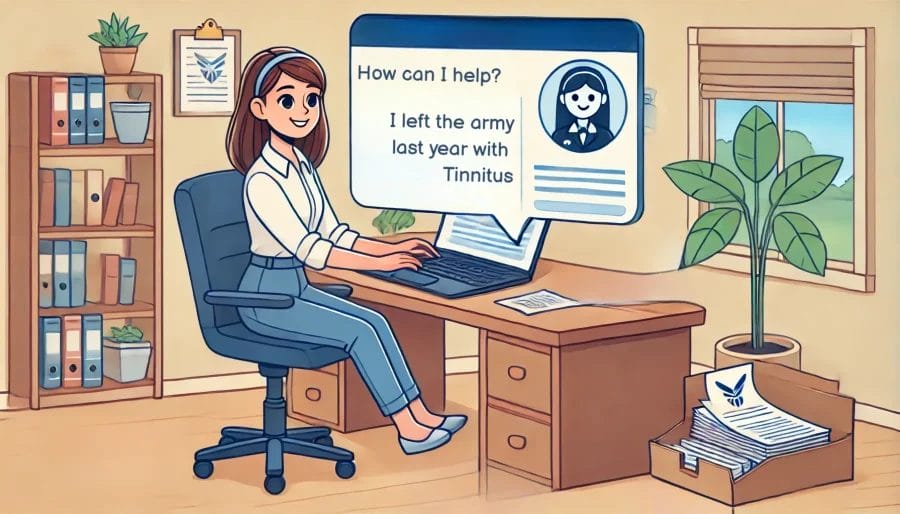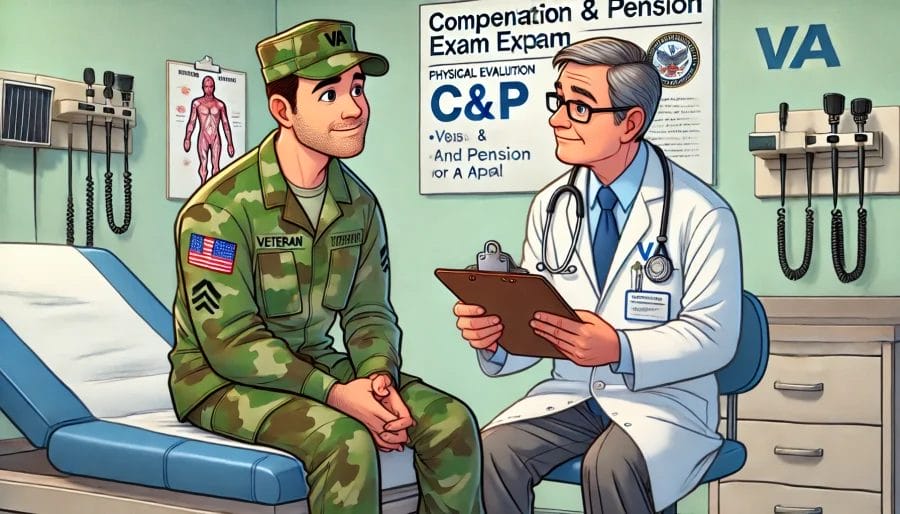In this guide, we’ll explain the VA disability appeal success rate, the appeal process, and tips for improving your chances of a successful outcome.
When veterans receive a VA disability rating that they feel is unfair or inaccurate, they have the right to file an appeal. The VA disability appeal process can be complex and time-consuming, but understanding the success rate and the steps involved can help veterans make informed decisions.
What Is the VA Disability Appeal Process?
The VA appeal process allows veterans to challenge decisions made on their disability claims, including the percentage of the rating, denials of claims, or effective dates of compensation. The appeal process includes several stages and options, depending on the complexity of the case and the evidence provided.
Appeal Options Under AMA (Appeals Modernization Act)
The VA implemented the Appeals Modernization Act (AMA) in 2019 to streamline the appeal process and offer multiple options for veterans dissatisfied with their decision:
- Higher-Level Review (HLR): A more experienced reviewer at the VA reviews the claim based on the same evidence submitted originally.
- Supplemental Claim: Allows veterans to submit new and relevant evidence for consideration.
- Board of Veterans’ Appeals (BVA): A formal appeal to a Veterans Law Judge, where veterans can submit additional evidence or request a hearing.
AI Powered Chatbot for VA Disability Claims
Learn more about the VA Disability process and get help with our VA Disability Claim Chatbot programmed and trained by AI

VA Disability Appeal Success Rate
The success rate of VA disability appeals varies based on several factors, such as the type of appeal, the evidence submitted, and whether the case goes before the Board of Veterans’ Appeals (BVA). Here’s a breakdown of success rates based on available data aggregated from a variety of sources :
Supplemental Claims
- Success Rate: Approximately 36-40% of supplemental claims result in favorable decisions for the veteran.
- Details: This success rate reflects the outcome of cases where veterans submit new evidence that helps change the VA’s initial decision. Providing new, strong medical evidence or clarifying service connection can improve these odds.
Higher-Level Reviews (HLR)
- Success Rate: About 12-15% of higher-level reviews (HLR) result in favorable decisions.
- Details: This is often a less successful option compared to others because no new evidence is allowed. The decision is based on the existing record, and the review only ensures that no errors were made during the initial evaluation.
Board of Veterans’ Appeals (BVA) Decisions
- Success Rate: Approximately 30-35% of cases that go before the BVA are granted, and about 25% are remanded for further review or additional evidence gathering.
- Details: The BVA tends to offer a higher success rate because it involves a more thorough review of the case, often including new evidence or legal arguments, and allows for hearings. Cases remanded typically return to the VA for more evidence gathering or corrections.
Factors Influencing the Success Rate of Appeals
1. Quality of Evidence
- Strong Medical Evidence: The success of an appeal is heavily influenced by the quality of medical records and nexus letters provided. Submitting additional medical opinions or detailed treatment records can significantly improve your chances of winning an appeal.
2. Legal Representation
- Veterans Service Officers (VSOs) and Attorneys: Working with a Veterans Service Officer (VSO) or a VA-accredited attorney can significantly increase your chances of success. They can help navigate the complexities of the appeal process and ensure all necessary evidence is submitted.
3. Type of Appeal
- Appeal Path Chosen: As noted earlier, success rates vary based on whether the veteran chooses a higher-level review, supplemental claim, or BVA hearing. Understanding which path offers the best chance based on your case is crucial.

How Long Does the VA Appeal Process Take?
The timeline for the VA appeal process can vary based on the type of appeal:
- Supplemental Claim: A supplemental claim takes on average, 4 to 5 months.
- Higher-Level Review: A higher level review (HLR) is typically resolved within 3 to 6 months.
- Board of Veterans’ Appeals (BVA): This can take much longer, from 1 to 2 years depending on the backlog, particularly if a hearing is requested. We’ve heard they can even take longer potentially.
Tips for Improving Your Appeal Success Rate
- Submit Strong, New Evidence: For supplemental claims, make sure the new evidence you provide is substantial, such as updated medical records or additional medical opinions linking your condition to service.
- Work with a VSO or Attorney: A professional representative can help ensure your appeal is properly prepared and supported with necessary evidence. VSOs and attorneys can also assist with complex cases that may require legal arguments.
- Be Clear and Thorough: In higher-level reviews or supplemental claims, ensure your reasoning for the appeal is clearly outlined. Avoid vague or incomplete explanations. If you feel an error was made, clearly explain the error or provide the necessary evidence to prove it.
- Attend a Hearing (If Possible): If you file a BVA appeal, opting for a hearing can give you a chance to explain your situation in person, provide additional evidence, and respond to questions from the judge. Veterans who attend hearings often have higher success rates.
Common Reasons for Appeal Denials
- Lack of New Evidence: Submitting a supplemental claim without sufficient new evidence can result in a denial.
- Insufficient Nexus: Failure to establish a clear link between your military service and your disability.
- Missed Deadlines: Not adhering to appeal timelines can result in the dismissal of the appeal.
- Incomplete Information: Missing key medical records or service documentation can negatively impact your chances of success.
The VA disability appeal success rate varies depending on the type of appeal and the strength of the evidence provided. While the process can be challenging, understanding your options and working with experienced representatives, like VSOs or attorneys, can improve your chances of success. Be prepared with strong medical evidence, submit new information, and choose the right appeal path to get the compensation you deserve.
For more help with your VA disability appeal, consult a Veterans Service Officer (VSO) or visit the VA’s How to Appeal a Decision page.
